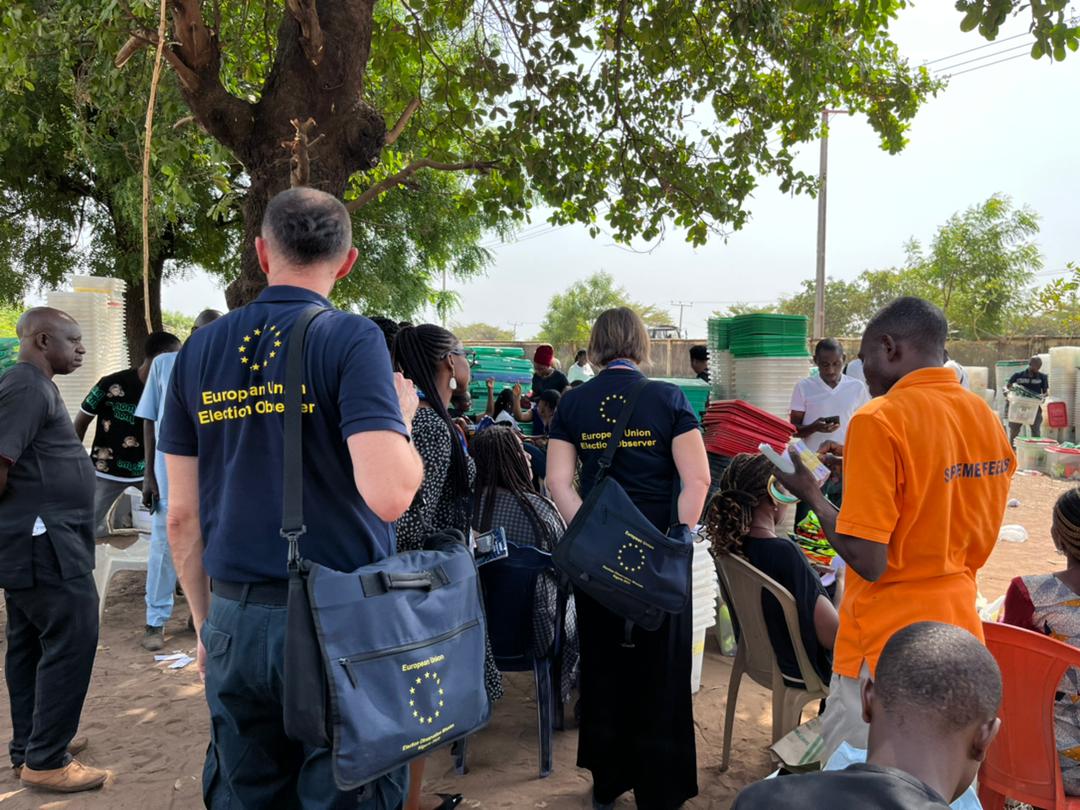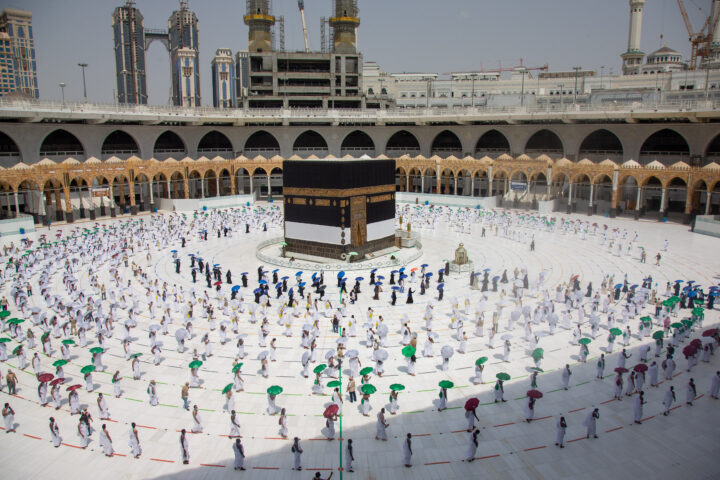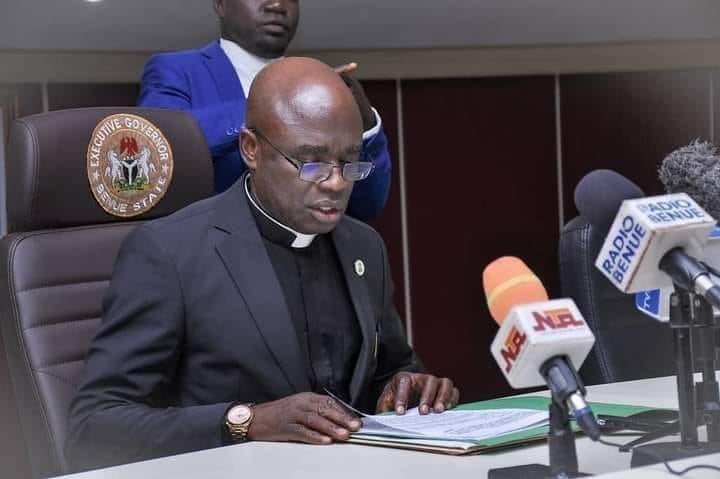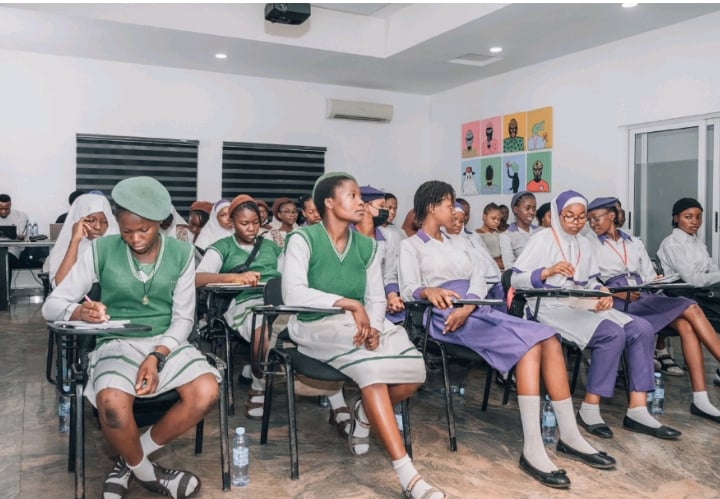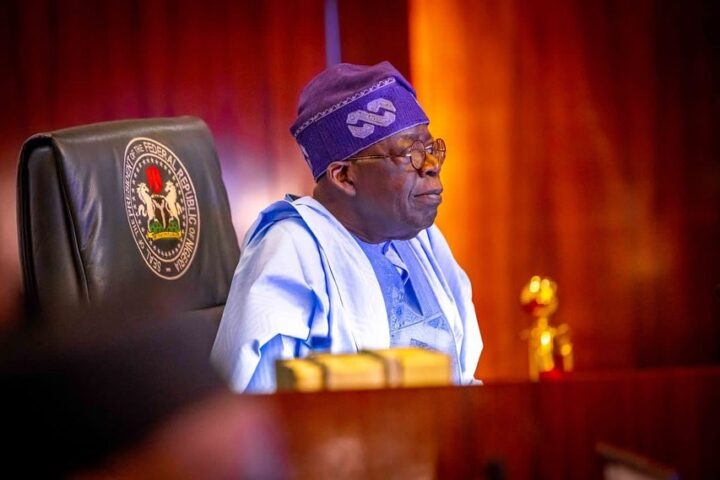BY EZENWA NWAGWU
So much has been said and written since the release of the report by the European Union Election Observer Mission. Ordinarily, it won’t be in my place to interrogate the credibility of the process that the European Union Election Observer Mission used for their report on Nigeria’s 2023 election. But it is important that as a participant election observer and as someone who has invested so much in our electoral process, we must take time to educate Nigerians on elections and the electoral process.
We cannot continue to allow public commentators to discuss elections from the perspective of ignorance of the electoral process and the electoral law. Nigeria is one place where people who are ignorant of a particular issue discuss such issues with so much passion and unless such ignorance is corrected by those who have the right information, we may never make progress as a nation.
First, it is important to start by saying that Nigeria has a long history and relationship with the European Union and its Election Observer Mission, which is the EOM that comes to observe our elections from time to time. I have no quarrel with this relationship but the bigger questions are; what is the driving motive for the EU to always think that we can’t do it well or that there is always a need for them to come and help us? At what point are we going to get to where they think we can do it for ourselves?
Advertisement
Are there EU Election Observation Missions to American, British or French elections? Why does the EU think that they have to come to Africa every time there is an election? While it is okay to do what I refer to as desktop arrangement, which is a means of gathering information, however, the sensitivities and the objective conditions of the reality that is on ground are things that foreign election observer missions cannot be arrogant about.
Of course, there are arguments to the suggestions that the EU should have a say in our elections since they provide funding support for INEC. First is to look at the percentage of the financial support. And this is very important. Because when we hear support, is it 2% or 1%? The whole donor support for the country, what does it amount to?
Unfortunately, as a people, perhaps because of our colonial history, when we have an election, if the EU does not speak, then every other person that has spoken does not matter because they made a financial contribution.
Advertisement
Having established this point, let us take a look at the six areas in which the recommendations from the EOM touched. But again, before I delve into this discussion, it is essential to ask again, whose standard is being benchmarked for a credible election? Is it the EOM that determines the benchmark for credible election?
I have taken time to look at the 2019 and 2023 reports of the EOM. I have also looked at the recommendations of the 2023 and 2019 elections. I would like to think that for us as a country, in terms of institutional leapfrogging of our electoral process, we did shift the needle. We have made progress. We had an electoral law that had sweeping reforms which helped us to take away the challenges that we were facing. For instance, Section 65 of the Electoral Act 2022, talks about the fact that once a result is announced by a presiding officer, nobody can review it. We had a situation in 2023 in which we reviewed three fundamental issues which couldn’t have happened in the past. These were in Adamawa, Enugu, and Abia states.
Section 65 of the Electoral Act gave INEC headquarters the opportunity to intervene directly in those states and made sure those issues that arose during the polls are not eventually determined by the tribunals. That is a major shift. So, when an observer group says legal framework, for instance, it appears that they have not taken into cognizance the progress that Electoral Act 2022 has given us.
The second issue is that of safety for journalists. This is a security issue. It is given that people who work in elections must be provided with security. Unfortunately, the people who have that responsibility are the security agencies, and we give them a lot of comfort. 90% of the conversation Nigerians have after elections, we zero in on what INEC did and what INEC did not do.
Advertisement
But there are two critical institutions that reform within them will help to guarantee free, fair elections. Number one is security. If we continue to outsource conversations about security provisions after the election and refuse to interrogate it, we will hardly make progress. The security provision needs to be interrogated because we don’t always put them on the spot.
The next sets of people we rarely pay attention to are the politicians and their role in elections. When we talk about violence, it is in the domain of those who want dubious advantages in elections. Those who want to create voter suppression, who want to create fear and siege mentality. And it is the politicians who are the beneficiaries of chaotic elections. Political parties need to carry out reforms within their system. As INEC is auditing the election, political parties under their own umbrella, the IPAC should have reviews also.
Let us go back to the EOM report. The aspect of the recommendation from the EOM that has generated more discussion is access to results. As someone who is a participant observer in the election process, I have asked, who should have access to the results at the polling units? It is important to state that there are four levels that have to be satisfied at that level of election result collation and announcement.
Number one is form EC8A which is the manual result sheet that is handed over to party agents and security. It is after the party agent and security personnel at a particular polling unit have collected those results that you can upload them on the IREV. Again, there is also a lift in terms of integrity level for election results management, which is the form E60. This is what we call the people’s result, which is pasted, mandatorily on the wall for interested voters in that polling unit. They can have an opportunity to take a snapshot.
Advertisement
So in addressing the different layers of access to election results, the voter in the polling unit has been satisfied by E60 and the party agent has also been satisfied by form EC8A. So when an election observer complains about access to results, I imagine that they are talking about the one that is uploaded on IReV.
I have continued to maintain that IReV is an add-on. Why is it an add-on? The simple explanation is that since 2003, you cannot find results in the cloud. You cannot find any result of the 1999 election as a researcher or interested person. But today, with all its weaknesses, if you are researching Nigeria’s 2023 election, you can find some results in the cloud. So, that is access.
For me, the EU report did not take into cognizance the objective conditions of the reality on ground. And that for me is the arrogance of knowledge. I have said repeatedly, that even if you are an international election observer, you must be trained. This is important because the recruitment of people for election observation doesn’t necessarily mean people who work in elections. It could be political people. For instance, we have had former President Goodluck Jonathan, Thabo Mbeki of South Africa, and most recently former Vice President Yemi Osinbajo, serve as international election observers. The fact that someone has been a president or has worked in civil society does not guarantee that the person has taken the pains to understand these processes and procedures of elections.
Advertisement
For the record, I’m not dismissing the report. I’m dismissing the tone with which it was crafted. And that tone is a result of the conflict between perhaps those who went to the field and the drafters of the report.
Of course, the report carried a lot of positives for those who have read through the reports, there are positives. But the challenge of the report is that from the beginning to the summary, it ran in a negative tone. And that negative tone is what is generating the adverse reaction.
Advertisement
My quarrel with that is that as a nonpartisan body, you cannot make a report that undermines the sovereignty of a country. If the conclusion is anything, it is weak especially when you try to establish the sense of the ambiguity in the claim of lack of access to results.
Where do collation and announcements of results end? By the electoral act, announcement and declaration of results end at the polling unit, while collation continues afterwards. It is absurd for anyone to think that collation ends when results have been uploaded on the IREV.
Advertisement
Where I tend to agree that we have a challenge is with the appointment of the last RECs. It is on record that civil societies and the media did say the appointment of some of the RECs before the 2023 election was hijacked by politicians. Some of the RECs were partisan, and we saw their performance in those states that we flagged before the elections.
We had a situation where somebody managing a hotel for someone in the government was appointed as a REC. We had another situation where a card-carrying member of a political party who ran for governor under the banner of a particular party was appointed into INEC as REC.
It is unfortunate that as civil society, we pushed against these appointments. But what did the national assembly do? Nothing. The APC government needs to take a critical look at the fact that if we are not going back to the recommendation of the Justice Uwais Commission, then we need to devise a way in which people of character are appointed to critical institutions such as INEC.
Without any doubt, the BVAS and IREV creation which litigants are using to challenge the elections at different levels is an initiative of the Prof Mahmood Yakubu-led INEC.
Nwagwu is chairman of Partners for Electoral Reform
Views expressed by contributors are strictly personal and not of TheCable.
